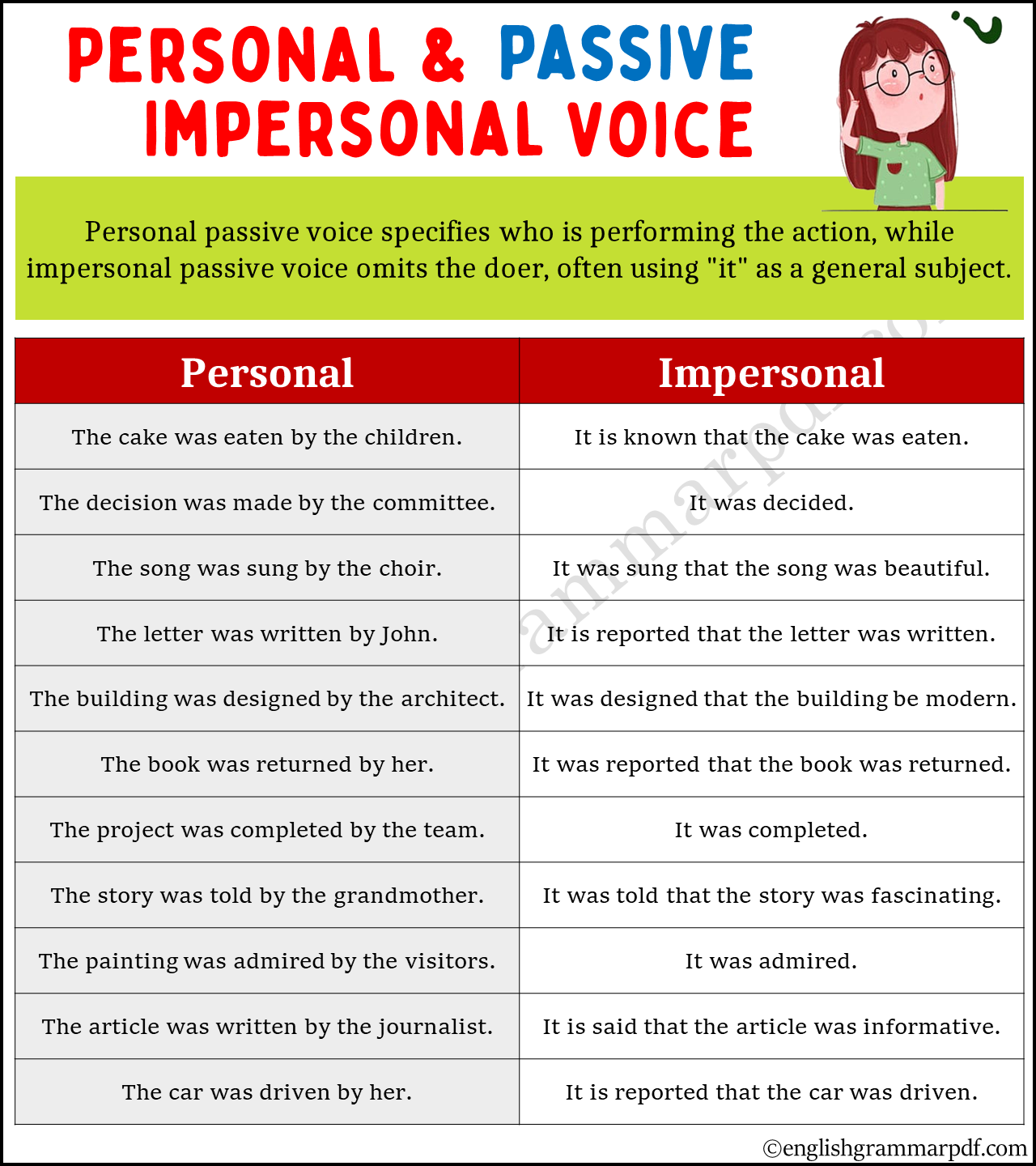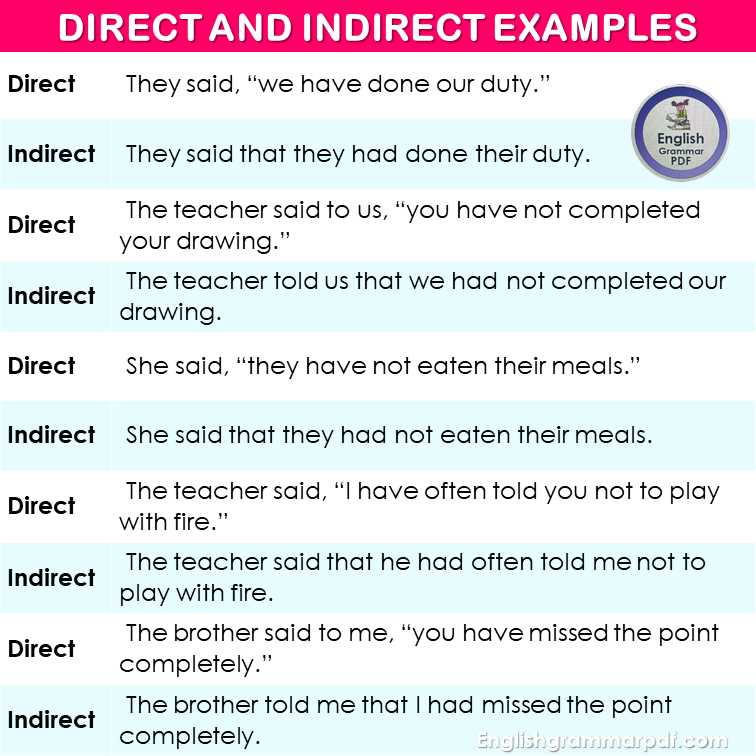This post explores the use of personal and impersonal passive voice in English. Learn what they are, understand their differences, and see examples of how to convert from personal to impersonal passive voice.
- Personal Passive Voice: This form of passive voice involves an action done by someone or something, where the focus is on the action rather than the doer. For example, The book was read by her.
- Impersonal Passive Voice: Used primarily in formal or informational contexts, this form does not specify a doer at all, focusing solely on the action or situation. It’s often used with verbs like ‘say’, ‘think’, or ‘report’. For example, It is said that the book is valuable.
Rules and Cases:
- Personal to Impersonal Conversion: Often, sentences in the personal passive can be transformed into the impersonal passive by removing the agent and sometimes using ‘it’ as a subject.
- Verb Usage: Impersonal passive often uses modal verbs or phrases like is said, is believed, etc.
- Context Appropriateness: Personal passive is widely used in everyday scenarios, while impersonal passive is more common in academic or formal writings where the agent is either unknown or unimportant.
Examples:
- Personal: The cake was eaten by the children.
Impersonal: It is known that the cake was eaten. - Personal: The decision was made by the committee.
Impersonal: It was decided. - Personal: The song was sung by the choir.
Impersonal: It was sung that the song was beautiful. - Personal: The letter was written by John.
Impersonal: It is reported that the letter was written. - Personal: The building was designed by the architect.
Impersonal: It was designed that the building be modern. - Personal: The book was returned by her.
Impersonal: It was reported that the book was returned. - Personal: The project was completed by the team.
Impersonal: It was completed. - Personal: The story was told by the grandmother.
Impersonal: It was told that the story was fascinating. - Personal: The painting was admired by the visitors.
Impersonal: It was admired. - Personal: The article was written by the journalist.
Impersonal: It is said that the article was informative.
- Personal: The car was driven by her.
Impersonal: It is reported that the car was driven. - Personal: The speech was delivered by the president.
Impersonal: It is said that the speech was delivered. - Personal: The novel was read by the students.
Impersonal: It is known that the novel was read. - Personal: The lesson was taught by the teacher.
Impersonal: It is reported that the lesson was taught. - Personal: The recipe was created by the chef.
Impersonal: It is known that the recipe was created. - Personal: The news was announced by the speaker.
Impersonal: It is announced that the news was shared. - Personal: The film was produced by the company.
Impersonal: It is said that the film was produced. - Personal: The agreement was signed by the leaders.
Impersonal: It is reported that the agreement was signed. - Personal: The goal was achieved by the athlete.
Impersonal: It is known that the goal was achieved. - Personal: The invention was patented by the inventor.
Impersonal: It is said that the invention was patented. - Personal: The flowers were planted by the gardener.
Impersonal: It is known that the flowers were planted. - Personal: The data was analyzed by the researchers.
Impersonal: It is reported that the data was analyzed. - Personal: The meeting was chaired by the director.
Impersonal: It is said that the meeting was chaired. - Personal: The promise was kept by him.
Impersonal: It is known that the promise was kept. - Personal: The play was directed by her.
Impersonal: It is said that the play was directed. - Personal: The gift was given by them.
Impersonal: It is known that the gift was given. - Personal: The contract was negotiated by the manager.
Impersonal: It is reported that the contract was negotiated. - Personal: The advice was followed by the client.
Impersonal: It is known that the advice was followed. - Personal: The document was approved by the board.
Impersonal: It is reported that the document was approved. - Personal: The job was offered by the employer.
Impersonal: It is known that the job was offered.



